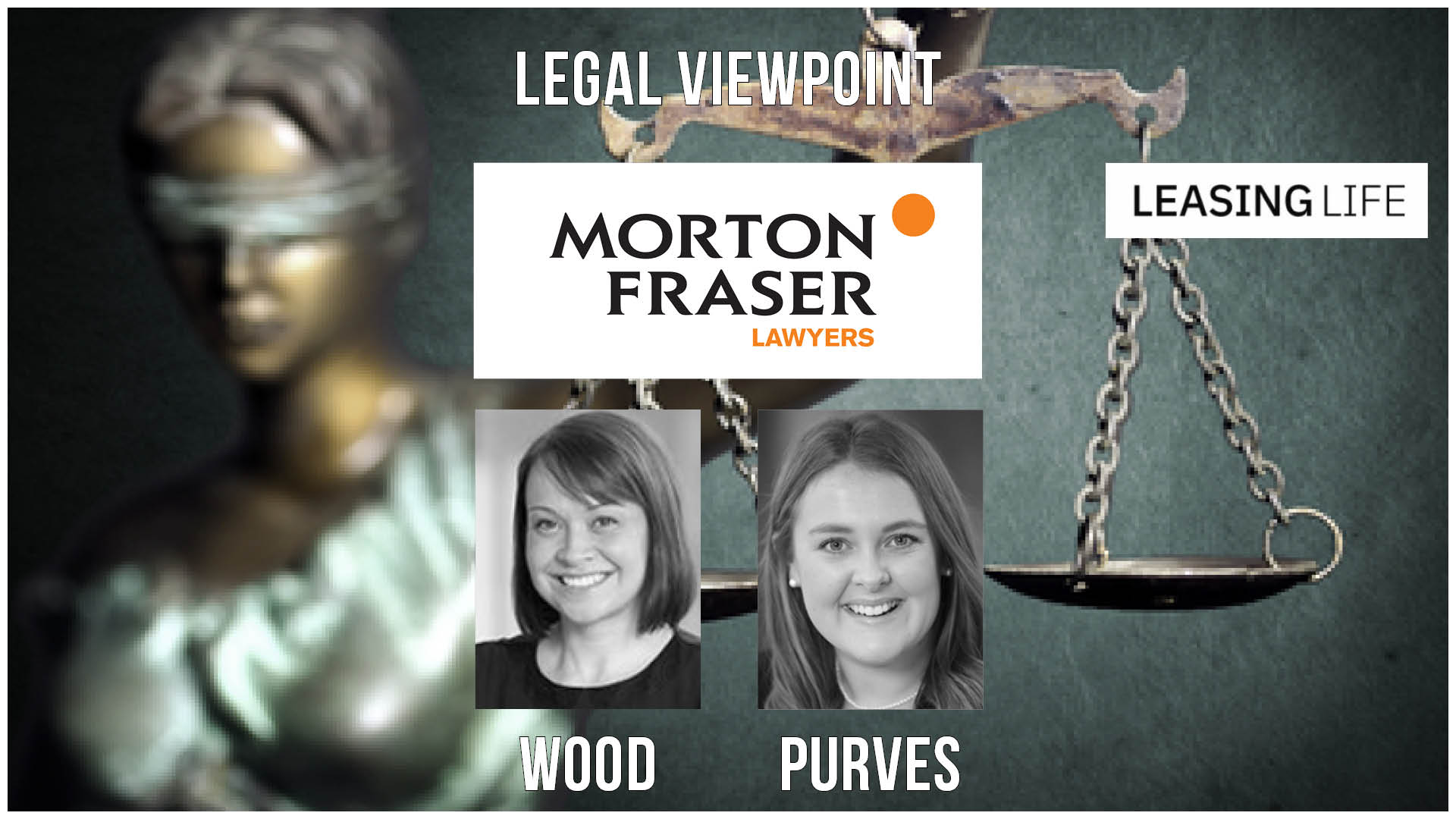
This article – by Beverley Wood and Laura Purves of law firm Morton Fraser – highlights some key issues for funders to think about when considering entering into asset finance transactions in Scotland.
Limitation of fixed charges in Scotland
In Scotland, there is no direct equivalent to the fixed security interests over moveable assets which can be granted under English law. The only fixed security interests generally recognised by Scots law are: a standard security which is taken over land or heritable property (real estate) in Scotland; a pledge of shares which has been properly created by transfer of the pledged shares to the pledgee; a pledge of assets which involves the transfer of possession to the security holder (but is clearly impracticable if those assets are required for the generation of income); and an assignation which has been intimated (notice has been given) to all relevant third parties. Therefore, generally in Scotland the most commonly taken security tends to be the standard security over heritable property, or an all assets floating charge.
The lack of ability to take fixed security in Scotland creates different issues for both asset and invoice financiers. Scots law in this area is not fit for purpose, but a significant change is on the horizon.
Sale and hire purchase back in Scotland
In a sale and hire purchase back, a typical transaction involves equipment being sold to the funder by the customer, to then be hired back to the customer by the funder under a hire purchase agreement. In this way, the customer receives payment for the sale of the equipment but can continue to use it and repay the funder by way of instalments under the hire purchase agreement.
When is Scots law relevant?
The key consideration in respect of a transfer of title to goods is not whether the hirer is Scottish or the finance agreement is governed by Scots law, but the law of the place where the goods are at the time title passes (together with any further restrictions introduced by the governing law chosen by the parties). Therefore, if a funder acquires goods from a hirer and the goods are in Scotland at the time, then the issue of any conditions which require to be fulfilled for the passing of title in those goods to the funder is a matter for Scots law, as well as the law of the relevant sale contract if different.
What is the issue with sale and hire purchase back?
The Sale of Goods Act 1979 (the “Act”) contains the basic rules which govern sale of goods and provides that title to goods on sale passes when the parties intend it to. There is an exception in Scotland which means that this provision of the Act does not apply to a sale intended to operate by way of security. It is therefore likely that the old Scots common law still applies to these transactions, meaning that delivery of the goods is required for title to pass. There is case law to the effect that a sale followed by hire purchase back is (or at least can be) a sale by way of security, meaning there is a risk that, without delivery, title does not pass to the funder, which could leave the transaction at risk of challenge.
How well do you really know your competitors?
Access the most comprehensive Company Profiles on the market, powered by GlobalData. Save hours of research. Gain competitive edge.

Thank you!
Your download email will arrive shortly
Not ready to buy yet? Download a free sample
We are confident about the unique quality of our Company Profiles. However, we want you to make the most beneficial decision for your business, so we offer a free sample that you can download by submitting the below form
By GlobalDataSo, can it still be done?
The risk of sale and hire purchase back transactions being successfully challenged (most likely by an administrator in the insolvency of the relevant company), resulting in the funder’s title to the equipment being void and the funder becoming an unsecured lender, understandably creates a degree of caution amongst funders when approaching this type of transaction in Scotland.
However, this does not mean it cannot be done in any circumstances, and where genuine characteristics of a sale can be established rather than the characteristics of a security, some funders in the market appear willing to take the risk. However, it does require funders to give thought to the potential risk involved. The risk may be alleviated to a large extent if the customer’s credit covenant, taken with any available guarantee or other security (a chattels mortgage in England or floating charge in Scotland) is undoubted, so that the goods themselves are not an essential part of the security package.
There are also other valid reasons why sale and hire purchase back may be a perfectly reasonable approach, such as avoiding the possibility of being a deemed importer of the goods into the UK. The key is to ensure the circumstances of any given transaction are considered in light of the Scottish legal background.
Is sale and leaseback any less risky?
With a sale followed by a leaseback, title to the goods never reverts to the hirer as, unlike hire purchase, there is no option for the hirer to purchase. It, therefore, looks far less like a sale operating by way of security.
Where the lease is a finance lease, whilst all of the economic benefits of the reversion of the ownership do pass to the lessee if he gets, for example, 95 per cent or more of the sale proceeds, that is still 95 per cent not 100 per cent. It is therefore still materially different from the situation where there is a reversion of the title.
Following a merger in February 2013 with Macdonalds (established in Glasgow in 1614), Morton Fraser can lay claim to being the oldest law firm in Scotland. Laura Purves is a senior solicitor and Bev Wood is a partner with Morton Fraser.







